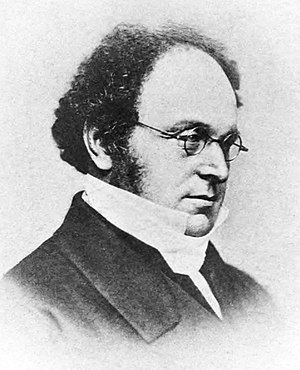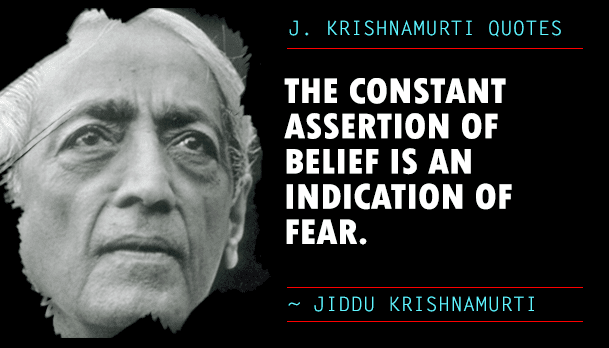|
Word Gems
exploring self-realization, sacred personhood, and full humanity
Belief, Trust, Faith
“Belief is nothing but a more ... forcible, firm, steady conception of an object, than what the imagination alone is ever able to attain.” David Hume
“Many of our most significant claims are actually [unproven] beliefs rather than [factual] knowledge.” Dr. Daniel Robinson

Editor's 1-Minute Essay: Belief, Trust, Faith
Editor's Essay: Commentary on Mark 11: "Believe that you have received your request and it will be yours."
Kairissi and Elenchus discuss Belief, Trust, Faith
Hope, Faith, Love: the traditional cardinal virtues. We are surprised to realize that each of these time-honored elements of goodness is laced with fear, doubt, and separation. None of this represents the authentic godly mind.
Attorney Adrian Smith: how Post-Modernism, one of the most pernicious cults, erodes personal liberties and undermines the West’s heritage of the rule of law
Also see the important writing:
Man is his own star [his own source of light and truth]. Trust thyself: every heart vibrates to that iron string. Nothing is at last sacred but the integrity of your own mind. Insist on yourself; never imitate. Shakespeare will never be made by the study of Shakespeare. Emerson puts forward these precepts of sacred individualism, not only as guide to spiritual maturity but, as protection against those who would control us. Strangely, this safeguard is even more important in the next life.
|
the biblical Greek word commonly translated "faith" or "believe" is often better rendered "trust"; we are to trust, not in words, not in hearsay evidence, not in fulminations of infallible gurus, not in second-hand revelations, but in a personal experience with the Divine - on this we are to build our lives, now and eternally

Dr. Carl Jung
"Religion is a defense against the experience of God."
"One of the main functions of organized religion is to protect people against a direct experience of God."
Editor’s note: The more we identify with a particular belief system, which, purportedly, encapsulates “the truth,” the more dysfunctional we become, cut-off from the source of authentic spirituality. Why is this so? To identify with a belief system is tantamount to identifying with one’s own thinking, the “voice in the head,” which is the “false self.” To do so mutes the inner whispering of the “true self.”
"We want to have certainties and no doubts—results and no experiments—without even seeing that certainties can arise only through doubt, and results only through experiment. The artful denial of a problem will not produce conviction; on the contrary, a wider and higher consciousness is required to give us the certainty and clarity we need."
“… nobody assumes that God is an immediate experience. In the Christian church they talk so much of the necessity of believing in God that one really becomes doubtful whether God can be an experience. You see, if we have the experience, we don’t need to believe. So the Greek word pistis, which means confidence, loyalty, is not at all what we understand by believing; it means the loyalty to the fact of the experience. … All the belief in the world doesn’t make it;… without an experience of God one has really no right to make the effort to believe—it leads nowhere.”
"Belief is no adequate substitute for inner experience, and where this is absent even a strong faith which came miraculously as a gift of grace may depart equally miraculously. People call faith the true religious experience, but they do not stop to consider that actually it is a secondary phenomenon arising from the fact that something happened to us in the first place which instilled pistis into us—that is, trust and loyalty."
“…I for my part prefer the precious gift of doubt, for the reason that it does not violate the virginity of things beyond our ken.”
“Where there is faith, there is doubt; where there is doubt, there is credulity; where there is morality, there is temptation.”
from the Jungian Center for the Spiritual Sciences
Jung recognized this distinction. Faith and belief are built on hearsay. As the quote opening this essay noted, Jung recognized how the church is always asking people to believe, to have faith, to turn away from doubt. This is because all the dogmas organized religions serve up make it less and less likely that “God can be an experience,” as Jung put it. Jung would prefer that people have direct, personal contact with the Divine, thus making belief unnecessary: “… if we have the experience, we don’t need to believe.”
Jung cited the apostle Paul as a classic example of an individual who had had a personal experience of the Divine, on the road to Damascus, and who thereafter manifested pistis—loyalty or fidelity to that fact. “… he stuck to that experience and didn’t go away from that fact.”
Jung did likewise: He had many personal encounters with the Divine and stuck with them, so that, a year or two before he died, when asked if he believed in God, he could tell John Freeman that he did not, because he had come to know God.
So belief becomes tenuous and “notoriously apt to disappear as soon as one begins thinking about it. … Belief is no adequate substitute for inner experience, and where this is absent even a strong faith which came miraculously as a gift of grace may depart equally miraculously.”
To Jung the “true religious experience” was not faith but an event—some sort of personal encounter with something greater “… which instilled pistis into us…” With trust or loyalty to one’s own experience, an individual had a solid base on which to build a life. Absent such experience, forced to rely on belief and faith, a person was liable to doubt, credulity and fear.
It is very common for religions to fall into the temptation of lusting for certitude. Congregants are urged to “have faith!” “Don’t doubt!” “Believe in Jesus” etc.—all of this pressed upon the flock with passion and intensity. Priests, pastors, rabbis and imams clearly don’t want their followers to fall away in succumbing to doubt.
To Jung, their very passion and intensity are signs of doubt (perhaps buried deep in the unconscious), for Jung recognized that, “Where there is faith, there is doubt; where there is doubt, there is credulity;…” “wherever doubt holds sway there is uncertainty and the possibility of divergent ways. And where several ways seem possible, there we … are handed over to fear.”
Part of the fanaticism found in fundamentalists (of whatever ilk) lies in their inner, repressed doubt and the fear that accompanies it: “For every one-sided conviction is accompanied by the voice of doubt, and certainties that are mere beliefs turn into uncertainties…” Rather than harangue followers and demonize doubt, Jung regarded doubt as a “precious gift,” and he suggested resolving doubt by experiment: test hypotheses/beliefs by living them out. He quotes one of his favorite authors, the 16th century alchemist Gerhard Dorn, on this point:
“Knowledge is the sure and undoubted resolution [resolutio] by experiment of all opinions concerning the truth…. Experiment is manifest demonstration of the truth, and resolution the putting away of doubt. We cannot be resolved of any doubt save by experiment, and there is no better way to make it than on ourselves.”
Making an experiment on ourselves—subjecting our own beliefs to testing—leads to pistis, that trust that is borne of personal experience. Ever the empiricist, in this Jung put his confidence.
|
|
'What is belief? - a state, not an act, of the mind.'

Augustus De Morgan (1806-1871)
|
British mathematician, with contributions to logic, set theory, probability theory, computer science, and numerous other fields; founder, London Mathematical Society (1865)
|
'It is not in the power of anyone to alter his state [of mind] by will. [There is] a tendency to suppose that [mere] profession [of mental position] might be taken for belief; the dishonest wanted only profession.'
The Gospel Of John commands belief; without which, it says, one is “damned already.” But there is no such thing as authentic belief led by will power. Human beings are constitutionally unable, lack the ability, to offer credulity on demand, even if they wish to do so and try very hard. Belief arises naturally, from the evidence, or not at all, even in spite of settled opinion.
And the fact that John suggests otherwise - indeed, commands - offers clear signal, to the objective reviewer, that this writing must be counted as fraudulent, an effort to engender fear in order to gain followers - a scheme of "the dishonest," warned De Morgan - and could never represent the mind of the real Jesus.
READ MORE
|

you don't need faith when you have direct knowledge
|

from the book, “The Power Of Myth,”
a discussion with Dr. Joseph Campbell
Moyers: You are a man of faith, of wonder, and --
Campbell: No, I don't have to have faith. I have experience... I have experience of the wonder of life.
|
Krishnamurti's lecture of December 10, 1970:
Question: Do you believe if there is anything beyond man?
Krishnamurti: You know the speaker has been saying, "Don't believe, find out, examine, discover for yourself" and at the end of an hour and a quarter, you ask the speaker, "Do you believe?" You want beliefs and you think you have solved the problem by having beliefs. You believe that there is something beyond. You don't know a thing about it, but you believe. You assume something as being real, accept something as being real, about which you know absolutely nothing. How can a confused mind, a mind in sorrow, a mind which is bitter, angry, how can such a mind find out if there is something beyond? But you believe readily, because that is one of your escapes about which you can quarrel endlessly.
Professor William James: "Faith means belief in something concerning which doubt is still theoretically possible; and as the test of belief is willingness to act, one may say that faith is the readiness to act in a cause the prosperous issue of which is not certified to us in advance…The only escape from faith is mental nullity… We cannot live or think at all without some degree of faith. Faith is synonymous with working hypothesis. The only difference is that while some hypotheses can be refuted in five minutes, others may defy ages.”
Sigmund Freud: “He does not believe who does not live according to his belief.”
George Bernard Shaw: “The liar's punishment is, not in the least that he is not believed, but that he cannot believe anyone else.”
Voltaire: "Anyone who has the power to make you believe absurdities has the power to make you commit injustices."
Rainer Maria Rilke: “And your doubt can become a good quality if you train it. It must become knowing, it must become criticism. Ask it, whenever it wants to spoil something for you, why something is ugly, demand proofs from it, test it, and you will find it perhaps bewildered and embarrassed, perhaps also protesting. But don't give in, insist on arguments, and act in this way, attentive and persistent, every single time, and the day will come when, instead of being a destroyer, it will become one of your best workers--perhaps the most intelligent of all the ones that are building your life.”
Thomas Paine: "Belief in a cruel God makes a cruel man."
Martin Luther King, Jr.: “I believe that unarmed truth and unconditional love will have the final word."
Norman Vincent Peale: "First thing every morning before you arise say out loud, 'I believe,' three times."
E. E. Comings: "We do not believe in ourselves until someone reveals that deep inside us is valuable, worth listening to, worthy of our trust, sacred to our touch. Once we believe in ourselves we can risk curiosity, wonder, spontaneous delight or any experience that reveals the human spirit."
Dr. Mortimer Adler: "Many persons first realize their own essence and worth in loving and being loved by another person. Cynics and pundits call such personal knowledge in erotic love 'idealization' or 'over-valuation' of the love object. But perhaps what they call 'idealization' is simply realization of [that is, believing in] what exists potentially in the beloved person and is first actualized in love."
Galileo: "I do not feel obliged to believe that the same God who has endowed us with sense, reason, and intellect has intended us to forgo their use."
William Wordsworth: "What we need is not the will to believe, but the wish to find out."
Rainer Maria Rilke: “It is always what I have already said: always the wish that you may find patience enough in yourself to endure, and simplicity enough to believe; that you may acquire more and more confidence in that which is difficult, and in your solitude among others. And for the rest, let life happen to you. Believe me: life is right, in any case.”
Buddha: "In the sky, there is no distinction of east and west; people create distinctions out of their own minds and then believe them to be true."
Theodore Roosevelt: "Believe you can and you're halfway there."
Goethe: "As soon as you trust [believe in] yourself, you will know how to live."
William Jennings Bryan: "The way to develop self-confidence [self-belief] is to do the thing you fear and get a record of successful experiences behind you."
William James: “Belief creates the actual fact.”
John Lennon: "I believe in everything until it's disproved. So I believe in fairies, the myths, dragons. It all exists, even if it's in your mind. Who's to say that dreams and nightmares aren't as real as the here and now? "
|




